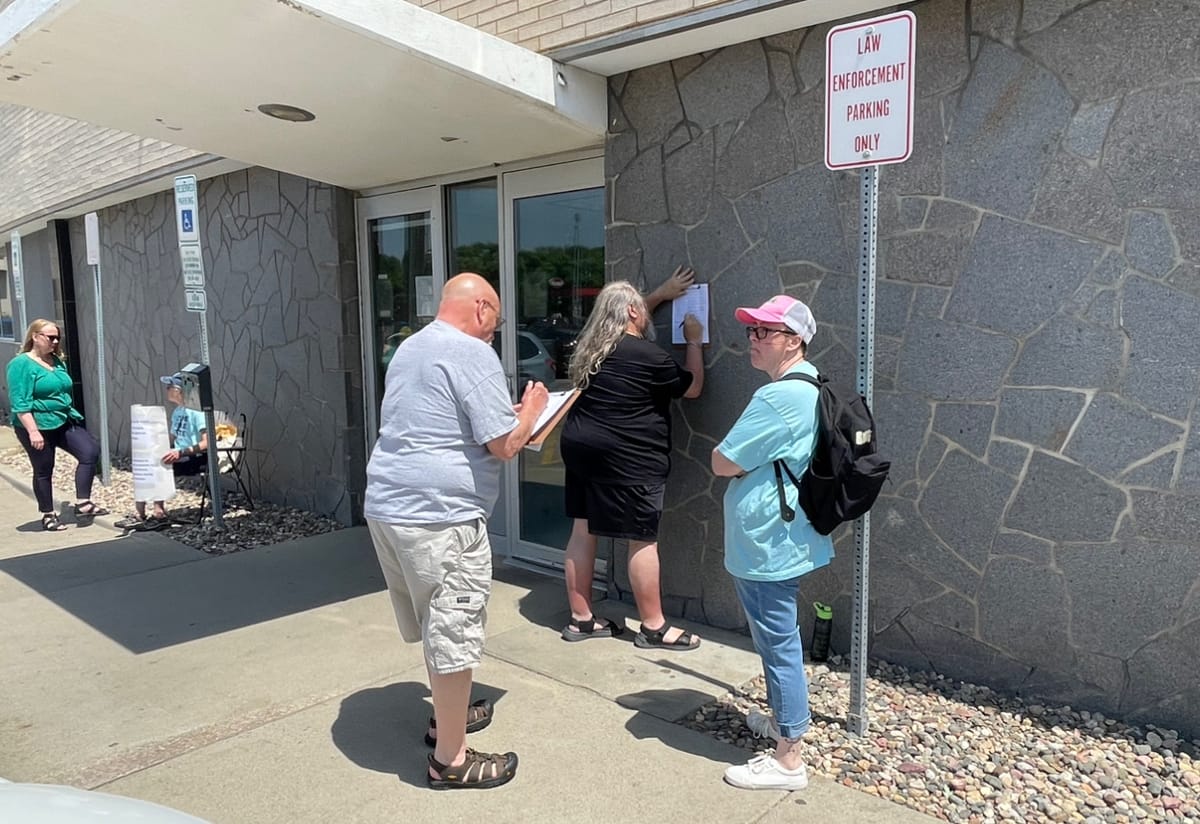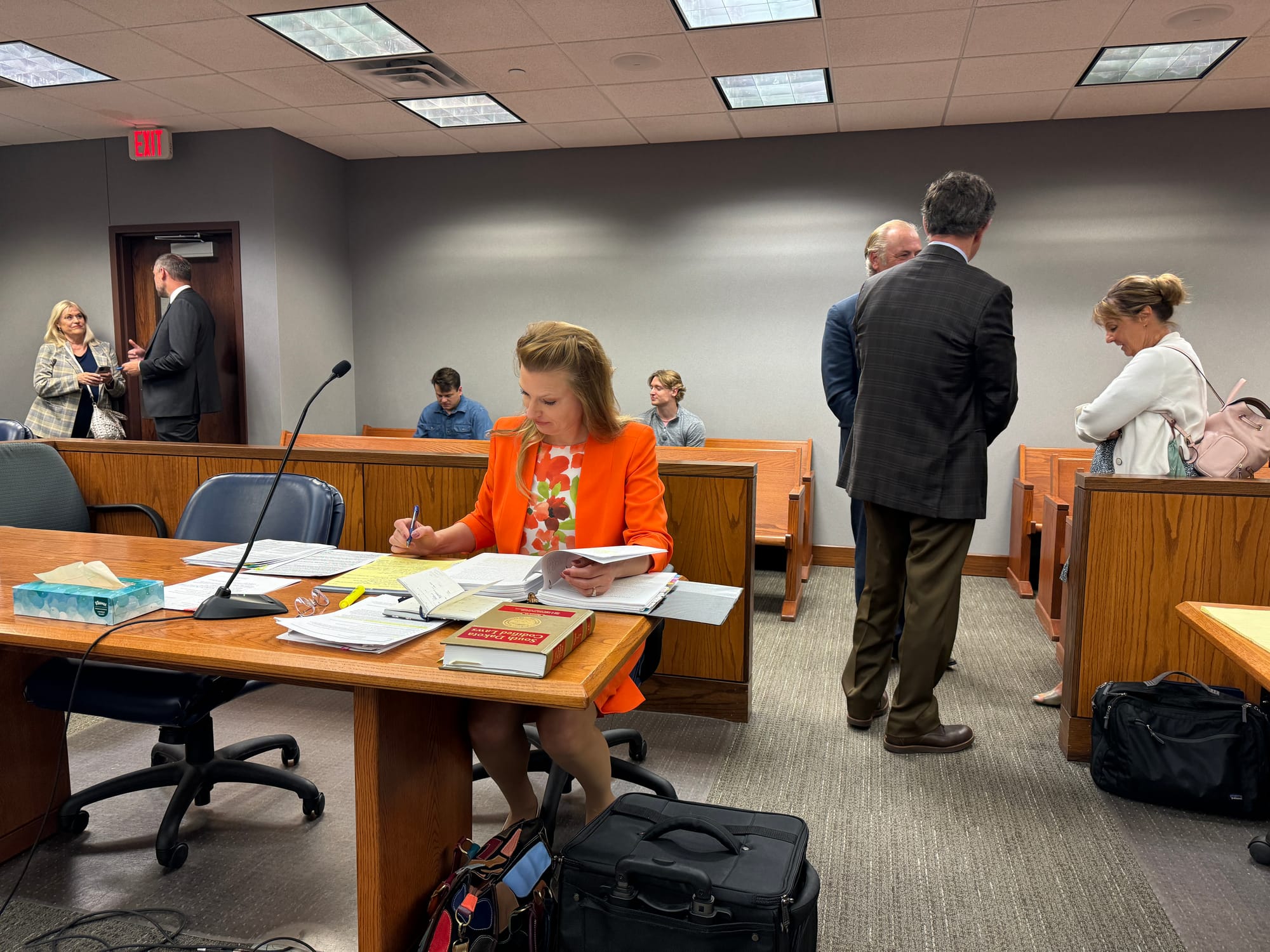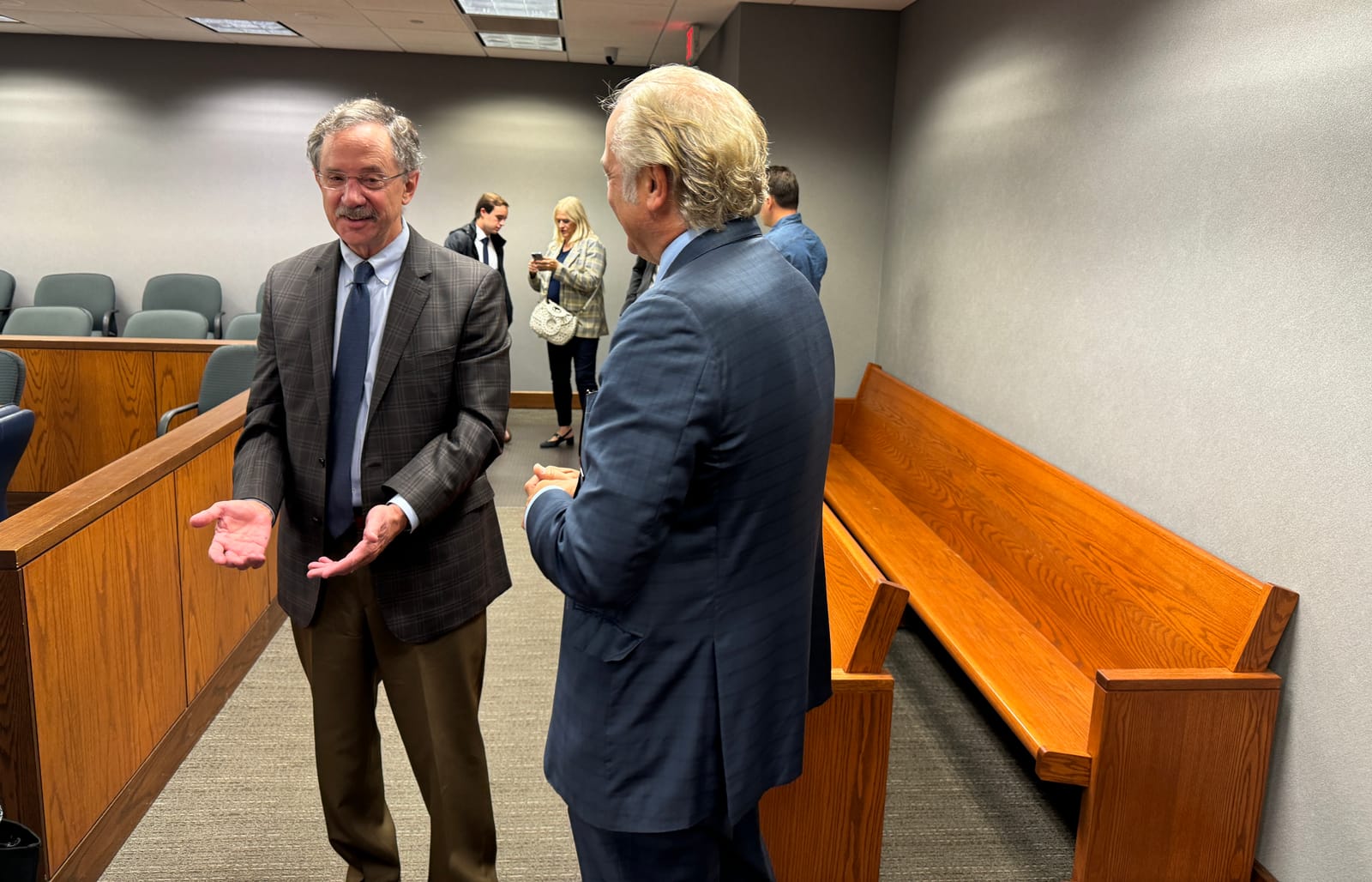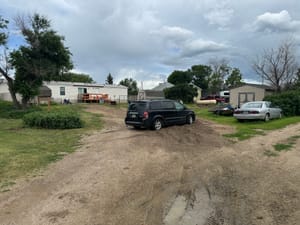SIOUX FALLS, S.D. – The campaign to put abortion rights before South Dakota voters on the November 2024 ballot claimed a major victory in state court Monday.
Circuit Court Judge John Pekas ruled in favor of Dakotans for Health, the grassroots organization behind Amendment G, by granting a motion to dismiss a lawsuit filed by anti-abortion group Life Defense Fund that sought to keep the measure from the ballot.
Rather than itemizing allegations of improper petition circulation raised in the complaint, Pekas noted the importance of following election law and questioned why the South Dakota Secretary of State’s office wasn’t named as a party in the lawsuit.

“I don't know how the Dakotans for Health can control the Secretary of State,” Pekas said during the hearing at the Minnehaha County Courthouse. “They submitted the (petition) information to the state of South Dakota and it has been accepted. The challenge I believe is now out of the hands of Dakotans for Health. In this particular instance, this is a collateral attack.”
In a press release, Life Defense Fund co-chair Leslee Unruh criticized the judge's ruling and said that her organization plans to appeal.
“The case was brought because we have a mountain of evidence and hours of video footage showing that (Dakotans for Health) deceived and tricked South Dakotans into signing their petition," Unruh said in the release. "This unexpected dismissal further plays into their motive to delay our case and refuse to answer our documented allegations. We will follow the judge’s invitation to appeal this case.”
Sara Frankenstein, the lawyer representing Life Defense Fund, and Jon Hansen, the group’s co-chair, did not respond to emailed questions from News Watch.
Jim Leach, who represented Dakotans for Health, called the decision a victory for the ballot initiative process in South Dakota.
“Any appeal decision is up to Life Defense Fund, but I hope they’re not going to pursue this cause any further,” Leach said outside the courtroom. “People want to vote. People signed petitions to vote. They’re saying that people shouldn’t be able to vote. Well, this is America. People should be able to vote.”
Amendment set for Nov. 5 ballot
South Dakota is currently under a 2005 state trigger law activated in June 2022 when the Supreme Court left it up to states to determine reproductive rights with its ruling in Dobbs v. Jackson Women’s Health Organization.
The law makes it a Class 6 felony for anyone “who administers to any pregnant female or prescribes or procures for any pregnant female” a means for an abortion, except to save the life of the mother.
If passed, Amendment G would prevent the state from regulating abortions during the first trimester. During the second trimester, the state could regulate the abortion decision, but any regulation must be reasonably related to the physical health of the mother. During the third trimester, abortion could be prohibited except if it is necessary to preserve the life or health of the pregnant woman, according to her physician.

On May 16, South Dakota Secretary of State Monae Johnson’s office certified the measure for the Nov. 5 ballot, saying that a random sample showed 46,098 signatures were deemed valid, well over the threshold of 35,017.
Nearly a month later, the Life Defense Fund and Frankenstein filed a complaint in state circuit court asking that the amendment be disqualified. It also asked the court to prohibit “Dakotans for Health and those who worked with or for it” from being involved in petition or ballot measure campaigns for a period of four years.
“If they had a complaint, they should have sued the Secretary of State,” said Leach. “She’s the one who counted all the signatures and then ruled. There were more than enough signatures to put this on the ballot so the people could vote. If they’ve got a problem with it, they need to talk to her.”
Federal judge declined to intervene
Life Defense Fund, led by Republican state legislator Hansen and longtime anti-abortion advocate Leslee Unruh, alleged in their lawsuit that petition circulators violated a residency affidavit requirement introduced into state law in 2018, among other charges.
That law was later superseded by Senate Bill 180, which was halted in federal court in January 2023 as part of a permanent injunction signed by U.S. District Judge Lawrence Piersol, an action upheld by the U.S. Court of Appeals.
Dakotans for Health filed a motion in federal court to enforce the permanent injunction, but U.S. District Judge Karen Schreier on July 5 ruled that state court proceedings should be allowed to continue before determining if federal intervention was warranted.

After Monday’s dismissal in state court, legal options for Life Defense Fund include appealing to the South Dakota Supreme Court or re-filing the lawsuit with the Secretary of State as defendant.
Time is a factor, considering that Aug. 13 is the deadline under state law for the Secretary of State to certify copies of all ballot questions to the county auditors.

“I’ve thought all along that this was a bridge too far for them to think they could dismiss 55,000 South Dakotans based on some petitioner residency requirement that’s not on the books,” Weiland said. “Every time they’ve tried to disrupt this and make it about something other than letting the people vote, they’ve been unsuccessful.”
Actions of petitioners questioned
Of the five counts detailed in the complaint as alleged violations, several were recast from clashes between Life Defense Fund and Dakotans for Health during the petition campaign and legislative session.
Among those accusations are that circulators left petitions unattended, failed to provide a circulator handout as required by law, and purposely confused the public with a “bait and switch” involving the grocery tax and abortion measures.

Attorney General Marty Jackley sent a letter to Dakotans for Health on Oct. 31, 2023, that mentioned "video and photographic evidence" of such encounters and warned of potentially illegal actions taken by petition circulators. No charges were filed.
Leach called the allegations “deceptive and overblown” in a February interview with News Watch. On Monday, he stressed that it was important to let the people have their say at the ballot box as part of South Dakota’s longstanding initiative process.
A statewide poll co-sponsored by News Watch and the Chiesman Center for Democracy at the University of South Dakota conducted in May showed that 53% of respondents support Constitutional Amendment G, compared to 35% opposed and 11% undecided.
This story was produced by South Dakota News Watch, a nonpartisan, nonprofit news organization. Read more in-depth stories at sdnewswatch.org and sign up for an email every few days to get stories as soon as they're published. Contact Stu Whitney at stu.whitney@sdnewswatch.org.







